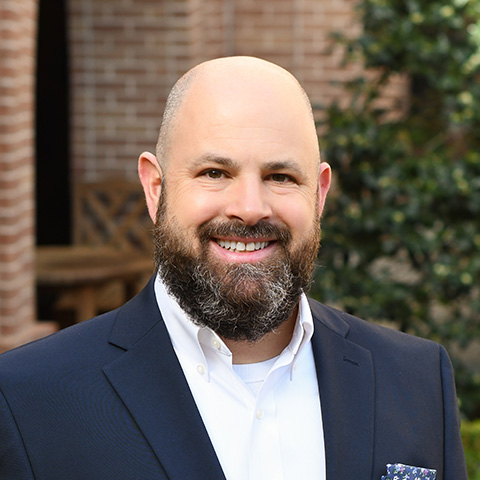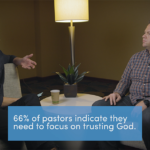
Because it is not easy or natural, it may be helpful for a pastor to learn a few phrases in preparation for conversations in the foyer after church.
By Don Ballard
Pastors do a lot of talking. They are wordy, and often too wordy. I know because I served as one.
Pastors are usually good with words. They are good at crafting thoughts and breaking down ideas. Pastors are usually top-level communicators and smooth translators of the gospel.
However, pastors are not always good at speaking to congregants or friends about faith outside the pulpit. Specifically, they don’t always do well with speaking truth to people who don’t know they need to have truth spoken to them: in the midst of their sin, their stubbornness, or their spiritual silliness.
Confronting people can be difficult because of the fear of retaliation. However, it is essential to the role of the pastor that plain truth be given to people to correct, rebuke, and encourage them to change their mind and actions.
Because it is not easy or natural, it may be helpful for a pastor to learn a few phrases in preparation for conversations in the foyer after church, in the coffee shop, or at Walmart when you bump into an angry congregant. Feel free to use these as appropriate.
“It does matter.”
It does matter what the Bible says about your marriage. Dr. Phil can be good, but the gospel is better.
It does matter what the church has taught regarding sex, marriage, parenting, leadership, and about 1,000 other issues.
It does matter how people feel after you attack them, gossip about them, or ignore them.
It does matter how a Christian lives in the community of faith—the historic and global community, not just the local one. It does matter.
“Go back to your church.”
This is something every pastor must say to people who say they are “visiting” from the church across town, but are really just church shopping.
Don’t see those folks as potential tithers, golfing friends, kids’ worship volunteers, or warm bodies in the seats. See them as confused Christians who think they can vote with their feet.
In almost every circumstance, Christians who are a part of one faith community need to stay in there for the long haul so that life and faith are balanced through thick and thin, good and bad, easy and difficult moments.
Resist the temptation to assimilate them. Instead, encourage them to go back. You don’t want your congregation to become a gathering place for disgruntled Christians.
“Why are you so mad?”
People are mad these days. Occasionally they see their own anger, but usually they have no clue.
They need a pastor to point it out to them and ask them why anger is among their most common reaction and facial expression. No one should be content with living angrily.
The church is not a gathering of the grumblers or a meeting of the mad at heart. Unrighteous anger has no place in the church, and pastors must call it out.
“I am sorry.”
This one is not for church members, but for us pastors. We need to learn how to say we are sorry. We need to learn how to ask for forgiveness.
We need to learn how to repent of our sin against our sister or brother. We need to recognize when we are wrong.
Claim it. Turn from it. Be reconciled to those we have hurt.
“God bless you.”
We are familiar with this phrase, but we probably use it only in a benediction or when someone sneezes during the sermon.
It might be helpful to incorporate these words into our daily vocabulary so that when we are insulted, undermined, or abandoned we might release our hurt feelings with a graceful exchange.
These words would be useful when we have to confront someone who is causing friction in the congregation, but we want to end without hard feelings.
Instead of a guilt trip or coarse language that lays a foundation of anger or bitterness, these would be excellent last words for those who have announced they are leaving the church.
We may not change people by the words we share with them. They may refuse our pastoral direction, and they may reject us as a voice of spiritual authority in their lives. But we must speak into their experience anyway.
This is pastoral ministry. We are not champions or “the savior of the day.” We are witnesses of the gospel full of grace and truth for the congregation that passes before us.
May God give us both wisdom and conviction in our conversations for His glory and for the strengthening of His church.

Don Ballard
Don is the chief operating officer of Hope and Healing Center & Institute, a comprehensive mental health resource founded to minister to those broken by life’s circumstances and a direct response to the compassionate Great Commission of Jesus.











